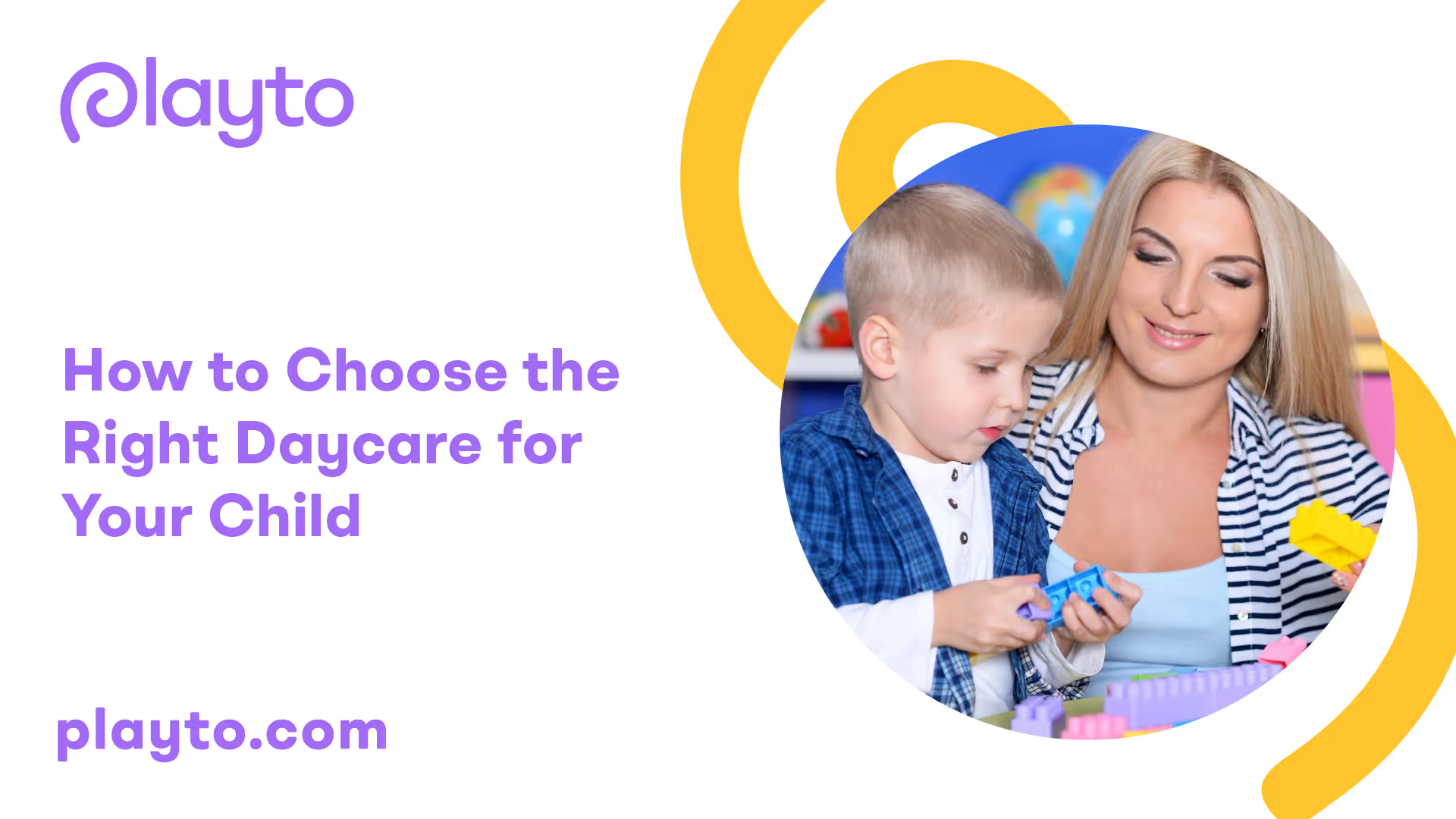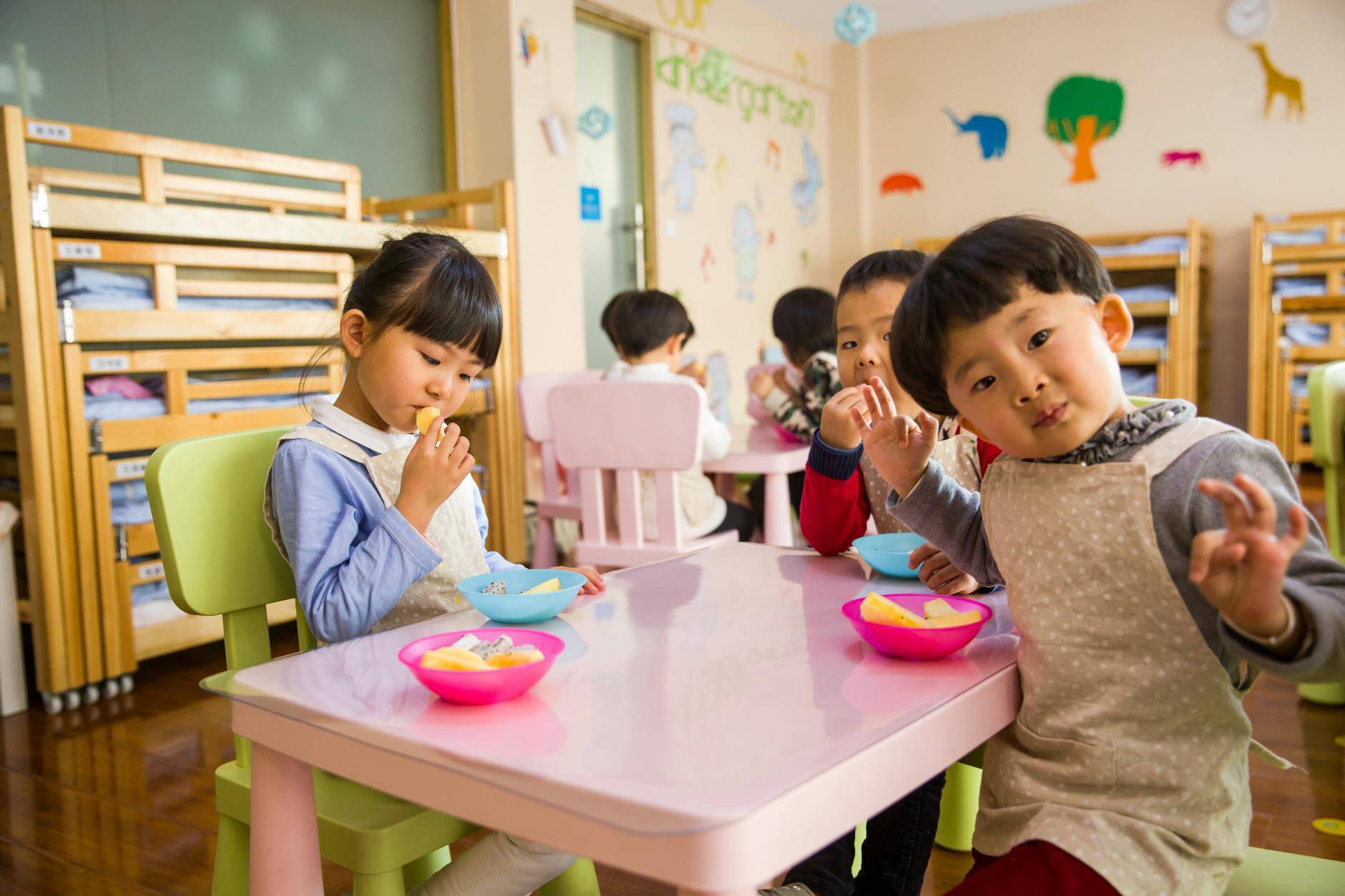Choosing the Right Daycare
When it comes to selecting the right daycare for your child, taking the time to research and visit different options is crucial. This section will guide you through two important steps in the process: starting your search early and visiting daycare centers.

Starting Your Search Early
It is highly recommended to start your search for a daycare well in advance, even before your child arrives or when you plan to return to work. This allows you ample time to thoroughly evaluate your options and make an informed decision. By starting early, you can avoid feeling rushed or limited by availability.
When beginning your search, consider your specific needs and requirements. Think about factors such as location, operating hours, cost, and the specific programs and services offered. This will help you narrow down your choices and focus on daycares that align with your family's needs.
Visiting Daycare Centers
Once you have identified potential daycare centers, it is essential to visit them in person. During your visit, pay attention to several key aspects to ensure the center meets your expectations. Some important factors to consider include:
- Happy Children and Staff: Observe the interactions between the children and caregivers. Look for signs of warmth, engagement, and attentiveness. A positive and nurturing environment is crucial for your child's well-being and development.
- Stimulating Environment: Assess the environment for age-appropriate toys, books, and activities. A well-equipped and stimulating environment encourages learning and exploration.
- Separation of Age Groups: Check if the daycare center separates children into age-appropriate groups. This allows for tailored activities and developmentally appropriate social interactions.
- Safety Measures: Ensure that the daycare center has appropriate safety measures in place. Look for locked doors, childproofed areas, and clear emergency procedures. A clean and healthy setting is also important to maintain your child's well-being.
- Licensing and Accreditation: Ask to see the daycare center's license and inquire about any accreditations they may have. This ensures that the center meets the necessary standards and regulations for child care. You can learn more about daycare licensing and regulations in our article on understanding daycare licensing and regulations.
When visiting daycare centers, don't hesitate to ask questions about their philosophy, curriculum, daily routines, and policies. It's also beneficial to interact with other parents who use the daycare and gather insights from their experiences. This can provide valuable perspectives on the quality of care provided. Remember to remain actively engaged in the process and maintain open communication with the daycare providers.
By starting your search early and visiting daycare centers, you can gather the necessary information to make a well-informed decision. A daycare center that aligns with your values and prioritizes your child's well-being will provide a nurturing and supportive environment for their growth and development.
Communication with Daycare Providers
When it comes to choosing the right daycare for your child, effective communication with daycare providers is key to ensuring a successful caregiver relationship. In this section, we will discuss the importance of timely communication and the significance of sharing information with daycare providers.

Importance of Timely Communication
Timely communication between parents and daycare providers is essential for maintaining a positive and effective childcare arrangement. Parents should prioritize picking up their child on time, as it demonstrates respect for the provider's schedule and helps maintain a smooth transition for the child. Additionally, making timely payments as agreed upon is crucial for sustaining a healthy working relationship.
To stay informed about your child's progress, it's important to actively seek and engage with the daycare provider's communication methods. This can include newsletters, emails, or other forms of regular updates. By regularly checking and responding to communications, you can stay up to date on any important announcements, events, or changes happening in the daycare center.
Sharing Information with Providers
Sharing relevant information about your child with daycare providers is vital to their ability to provide the best care. By offering insights into your child's likes and dislikes, calming techniques, food and nap preferences, and any recent developments or changes in their routine, you can help the providers better understand and cater to your child's needs. This information allows caregivers to create a nurturing environment that aligns with your child's individual requirements.
Establishing a sound long-term relationship with daycare providers involves active engagement and communication. By remaining involved and connected, parents can foster a partnership with the providers, enabling them to work together towards the well-being and development of the child [2]. Regularly discussing any concerns, questions, or updates with the providers can help strengthen this relationship and ensure that everyone is working towards the common goal of providing the best care for your child.
Remember, open and transparent communication is the foundation of a successful caregiver-parent partnership. By prioritizing timely communication and sharing relevant information with daycare providers, you can contribute to a positive and effective childcare experience for your child.
Understanding Ratios and Group Sizes
When choosing the right daycare for your child, it's essential to understand the significance of ratios and group sizes. State regulations govern these aspects of daycare centers, ensuring the safety and well-being of children in their care. Let's explore the importance of state regulations and staff-to-child ratios.

State Regulations
Federal law mandates that states and territories establish standards for child group sizes and staff-to-child ratios in daycare centers to guarantee the safety, well-being, and development of children in these programs. These regulations vary from state to state, so it's important to familiarize yourself with the specific guidelines in your area.
State regulations take into account factors such as the age of the children, the type of care provided, and the qualifications of the caregivers. By adhering to these regulations, daycare centers ensure that children receive appropriate care and attention.
Staff-to-Child Ratios
Maintaining low staff-to-child ratios and small group sizes is crucial for providing quality care to children in daycare centers. A lower staff-to-child ratio allows for more one-on-one attention and interaction between caregivers and children, especially for younger age groups that require additional support [3].
The specific staff-to-child ratios may differ based on the age of the children. For example, infants and toddlers require closer supervision and care, necessitating smaller group sizes and more caregivers per child. In family child care home programs with mixed-age groups that include infants and toddlers, the recommended maximum staff-to-child ratio is 1:6, with no more than two children being 24 months or younger [3].
To help parents make informed decisions, experts in early childhood development have provided general recommendations for safe staff-to-child ratios and group sizes in child care centers and large family child care homes. The following table offers guidance:
Age GroupStaff-to-Child Ratio Maximum Group Size

Table based on recommendations from early childhood experts (Childcare.gov)
Understanding these ratios and group sizes can help you evaluate daycare centers and ensure that your child will receive the appropriate level of care and attention. When visiting potential daycare centers, inquire about their adherence to state regulations and their specific staff-to-child ratios. This information will assist you in making an informed decision about the right daycare for your child. For more information on daycare licensing and regulations, refer to our article on understanding daycare licensing and regulations.
Ensuring Daycare Security
When choosing a daycare for your child, ensuring their safety and security is of utmost importance. Daycare facilities should have measures in place to protect the well-being of children. In this section, we will explore two key aspects of daycare security: background checks and screening, as well as the security measures implemented by daycare centers.
Background Checks and Screening
To provide a safe environment for children, daycare centers should conduct thorough background checks on everyone working with children, including adults and older teenagers. These checks are essential for identifying individuals with a history of abuse or violence towards children. Most states require background checks to be conducted as part of the licensing requirements for daycare centers [4].
By conducting background checks, daycare centers can minimize the risk of placing children in the care of individuals with a concerning history. This ensures that the staff members have been properly vetted and are suitable for working with children.
Security Measures in Place
Daycare centers should have various security measures in place to ensure the safety of children. Some common security measures include:
- Security Cameras: Many daycare facilities utilize security cameras both inside and outside the premises. These cameras serve as a deterrent for potential crime and can also help monitor and record activities. In case of emergencies, footage from these cameras can be valuable evidence. Some facilities may even offer families access to live stream video of their children's classroom for added peace of mind.
- Controlled Access: Controlled access systems, such as electronic door locks, security gates, fingerprint scanners, keycards, or codes, help limit access to daycare facilities. These systems ensure that only authorized individuals can enter the premises, enhancing the safety of children. Maintaining accurate records of people entering and exiting the facility can be crucial during emergencies.
- Emergency Alert Systems: Daycare centers should have emergency alert systems in place to quickly communicate with families and staff members during emergencies. These systems may include audible alarms, text/email notifications, or mobile apps for real-time updates. By promptly coordinating responses, daycare centers can help ensure the safety of children.
- Strict Pick-Up and Drop-Off Procedures: Daycare facilities should have strict procedures for pick-up and drop-off. These procedures may include requiring identification from authorized adults, updating the list of authorized individuals, and maintaining a log of each pick-up and drop-off. Additional security measures, such as providing a secure code for pick-up confirmation, can help prevent unauthorized access to children.
By having these security measures in place, daycare centers prioritize the safety and well-being of children. When evaluating potential daycare options, it's important to inquire about the security protocols and measures implemented by the facility. This will give you peace of mind knowing that your child is in a secure environment.
When it comes to choosing the right daycare for your child, security is just one aspect to consider. It's also important to evaluate other factors such as licensing and accreditation, caregiver qualities, and the overall quality of childcare. To learn more about these aspects, refer to our section on evaluating the quality of childcare and our article on understanding daycare licensing and regulations.
Locating Child Care Options
When it comes to choosing the right daycare for your child, it's important to explore various child care options to find the one that best meets your specific needs. This section will discuss two key strategies for locating child care options: utilizing referral services and visiting multiple programs.
Utilizing Referral Services
One effective way to start your search for daycare centers is by utilizing referral services. These services, such as LOCATE: Child Care, help parents and caregivers find child care options near their preferred location. They take into consideration specific requirements such as location, hours, and cost. LOCATE: Child Care is available as a free referral service that can be accessed online anytime or by calling 877.261.0060 Monday through Friday from 8:30 a.m. to 4:00 p.m. [2]. Similar services may be available in your area, providing valuable assistance in finding suitable daycare options.
By utilizing referral services, you can save time and effort in searching for daycare centers. These services often have access to a comprehensive database of licensed and accredited child care providers, allowing you to narrow down your options based on your specific preferences and requirements.
Visiting Multiple Programs
While referral services provide valuable information, it's essential to visit multiple daycare programs yourself. By physically visiting different programs, you can get a firsthand look at the environment, observe the child care providers, and interact with the children. This will help you assess the atmosphere, cleanliness, and overall vibe of each daycare center.
During your visits, it's important to ask questions and gather as much information as possible. It's recommended to visit at least three programs and take your child along. This will allow you to observe how your child reacts to the environment and the caregivers, helping you gauge their comfort level.
When visiting daycare centers, consider the following factors:
- Safety measures in place, such as childproofing, secure entrances, and emergency protocols
- Staff qualifications and experience in early childhood education
- Staff-to-child ratios, ensuring that each child receives adequate attention and care
- Daily routines and activities, including learning opportunities, playtime, and nap schedules
- Meals and snacks provided, taking note of any dietary restrictions or preferences
- Policies on communication with parents, including regular updates and opportunities for parent-teacher meetings
By visiting multiple programs, you can compare and contrast the offerings and environments. This will help you make an informed decision and choose a daycare center that aligns with your child's needs and your expectations.
Remember, it can also be helpful to interview other parents who have experience with the daycare centers you are considering. They can provide valuable insights and perspectives on the quality of care provided. By gathering as much information as possible and considering various factors, you can make a well-informed decision and choose the right daycare for your child.
Evaluating the Quality of Childcare
When it comes to choosing the right daycare for your child, evaluating the quality of childcare programs is crucial. This involves assessing various factors, such as licensing and accreditation, as well as the qualities of the caregivers.
Licensing and Accreditation
To ensure a healthy and safe environment for children, it is important to verify that the daycare center holds the necessary licenses at the state and regulatory body levels. Licensing ensures that the center meets specific requirements regarding health, safety, and program quality. You can learn more about daycare licensing and regulations in our article on understanding daycare licensing and regulations.
In addition to licensing, families can also consider centers that have obtained national accreditation or quality ratings. National associations, such as the National Association for the Education of Young Children, evaluate childcare facilities based on criteria like teacher-student interactions and the physical environment. These standards help identify high-quality childcare programs and ensure that they meet rigorous quality benchmarks.
Assessing Caregiver Qualities
The qualities and qualifications of caregivers play a vital role in the quality of childcare. A good childcare provider should not only assist children but also help them reach developmental milestones in cognitive development, gross motor skills, and fine motor skills. Nurturing relationships and supporting children's growth are key aspects of a quality childcare program [5].
When evaluating caregivers, consider their educational backgrounds and experience in early childhood education. Educators who pursue continuous learning and professional development contribute to enhancing the quality of a childcare program. Look for programs with teachers who are committed to ongoing education and improvement, striving for best practices in the classroom [5].
It is also valuable to assess the level of interpersonal interactions between teachers and children. High-quality early childhood programs prioritize supportive relationships, as they are crucial for children's social and emotional development.
By considering licensing, accreditation, and caregiver qualities, you can evaluate the quality of childcare programs and make an informed choice for your child's daycare. Remember to visit multiple programs, ask questions, and gather information to ensure that the chosen daycare center meets your child's developmental and educational needs.
